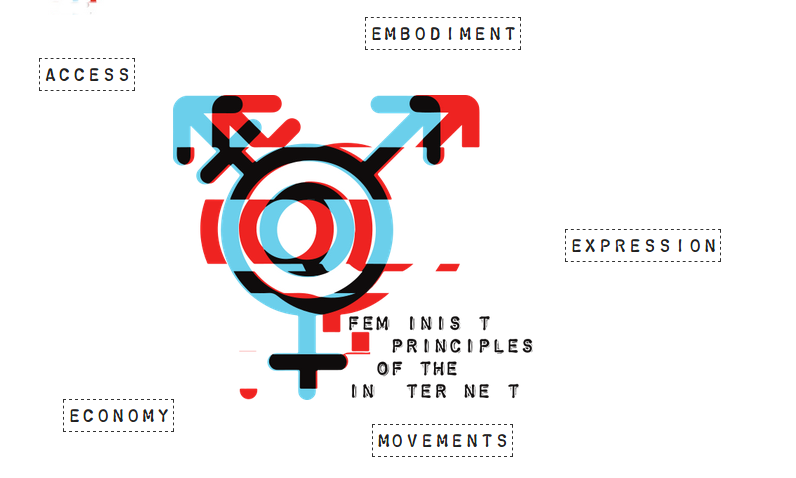
foundation
Feminism
Intersectionality
Lived Realities: contexts and specificities
Women and people of diverse sexualities and genders
Pleasure
(Em)Power

FPIs, a feminist framework at the intersection and in the continuum of internet and tech
How to make sense of what we experience? How to use evidence to transform? Which frameworks to use? And why a feminist framework? The first most simple and direct answer would be: why not?!
(In plain sight, on sexuality, rights and the internet in India, Nepal and Sri Lanka, hvale vale)
feminism
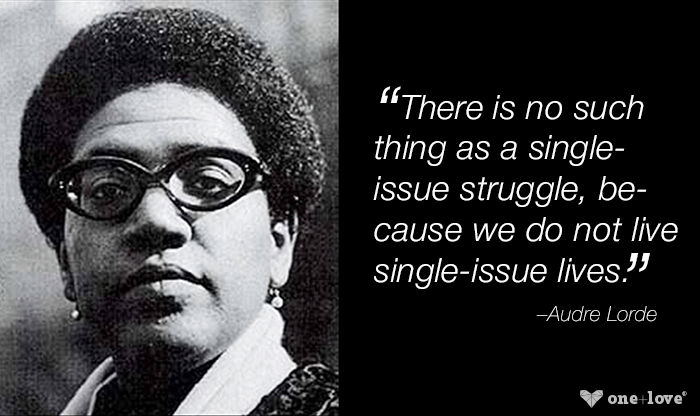
... Intersectionality is not primarily about identity it's about how structures make certain identities the consequence of, the vehicle for vulnerability, so if you want to know how many intersections matter you've got to look at the context ... What kind of discrimination is going on, what are the policies, what are the institutional structures that play a role in contributing to the exclusion of some people and not others ...01:55 to 07:26
Women and people of diverse sexualities and genders

Lived Realities
contexts and specificities
“Living as we did—on the edge—we developed a particular way of seeing reality. We looked from both the outside in and the inside out. We focused our attention on the center as well as the margin. We understood both. This mode of seeing reminded us of the existence of a whole universe, a main body made up of both margin and center
(bell hooks, Margins to Center:hooks 2000:xvi)”.
Pleasure is a feeling of happy satisfaction and enjoyment.
Activism consists of efforts to promote, impede, or direct social, political, economic, or environmental reform or stasis with the desire to make improvements in society.
Pleasure activism is the work we do to reclaim our whole, happy, and satisfiable selves from the impacts, delusions, and limitations of oppression and/or supremacy.
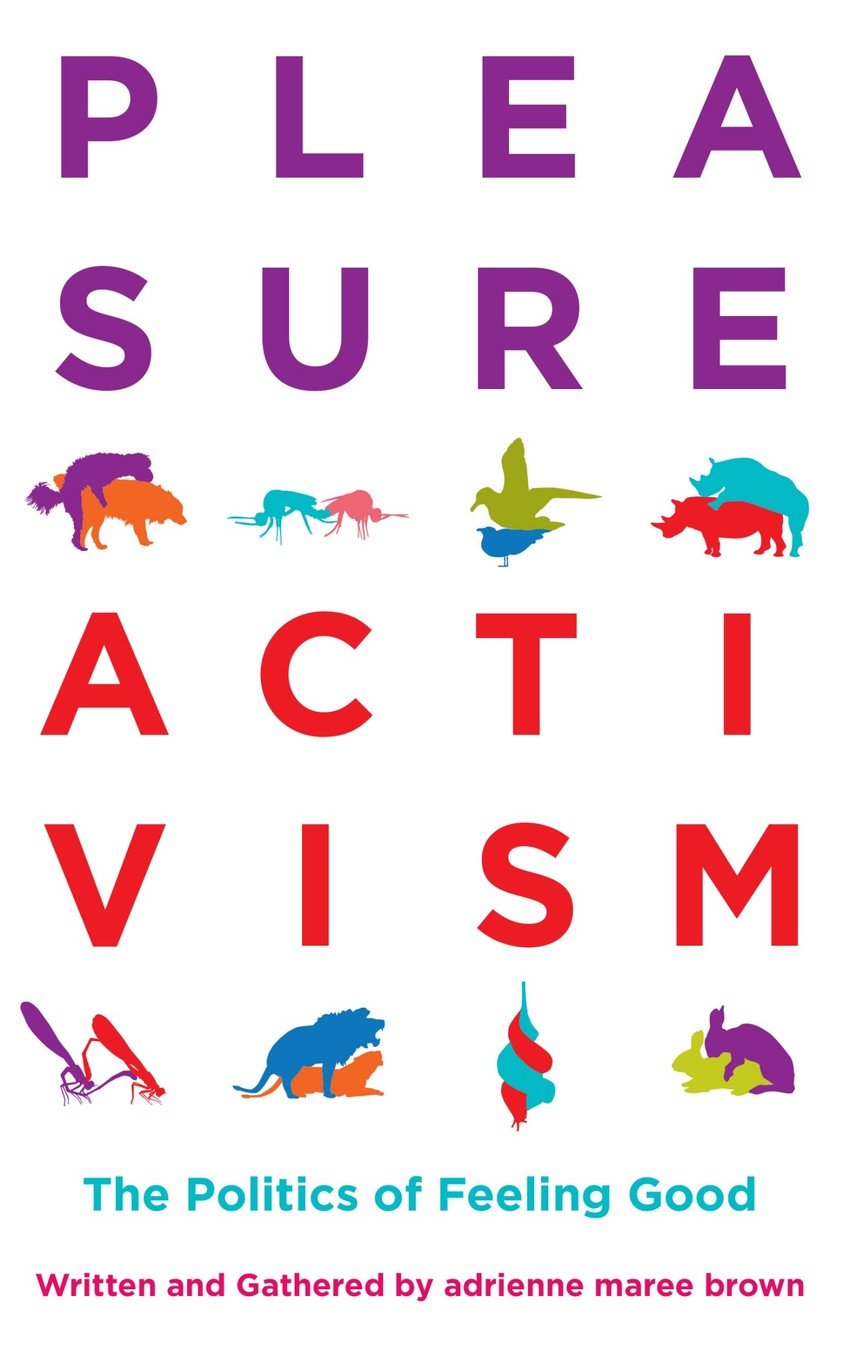
(Em)Power
The FPIs talk of power, the one invisible, hidden, the one that belong to the few and is used against the many but most the talk of the 5 layers of power of the internet itself:
- Structural
- Discursive
- Economic
- Embodied
- Networked
The 5 layers of internet power
are reflected, expanded and deepened trough the five clusters of the FPIs:
- access,
- expression,
- participation and building of movements,
- economy
- embodiment
The principles can be combined, refer to each other, can be used as stand alone and remain open for reflection and transformation.
Structural power
Access cluster
Internet connects end-users, access pose the issue of structural power. Who has the power to land the cables, the satellites, the drones? Who decide about the last mile, the costs of the services?
Internet can enact very conservatively but can be very innovative, think of the power to create community owned infrastructure that are outside the mainstream internet, that can stay off-grid or connect to other similar collective-owned infrastructures shaped by very specific local needs.
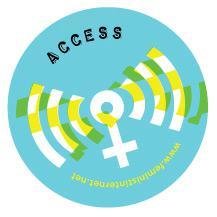
Discursive power
Expression Cluster
“Discourse is more material” than ever and internet give us “the capacity to create our own truths. Our own knowledge. Have unknown histories and practices be collectively shaped and known. From indigenous communities to queer communities”.
The internet enables the “ability to participate in influencing discourse, shaping culture, which is arguably one of the most important shifts in power. Because it’s about what is invisible: our understanding, attitudes, beliefs, that then influences our practices.”
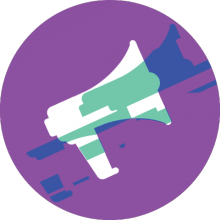

Economic power
Economy cluster
The power of generating economic models and revenue, from the first ebay to the last start up.
Capitalism, high profit and controlling such as Amazon
or circular economy?
Traditional? Experimental? Innovative? Social? Shared? Autonomous? Individualistic?
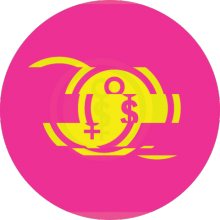
Embodied power
Embodiment cluster
Internet and pleasure, internet as s/place to overcome limitations of mobility, accessibility from mailing list, to organizing of communities with disability to remote controlled sex-toys to erotics chats.
Anonymity online makes the exercise of autonomy, agency and dignity more possible, allowing for people to explore to seek community, to push the envelop of respectability and of social norms

Body on or in the internet means data, and there are extensive national IDs projects and biometrics where individuals become what their data says about them.
- What is the implication of these multiple data sets, and what mechanisms available or what rights are there when errors are made?
- How does all this impact the lives of people?
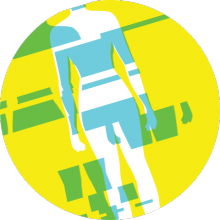
Networked power
Participation and building of movements
The power of connecting and creating networks.
“Most importantly, it connects us. Allows us from becoming weird atomized individuals to find others who are interested in, care about, concerned about the same things. Enables us to organise, have conversations, plan for collective action, take things to different spaces, make shifts across the different layers of power, occupy different spaces. Because the characteristic of the internet, is essentially one that is networked. It is about connections. And the freedom to make connections, towards the shift and change we collectively believe in, is an important one”. Jac sm Kee
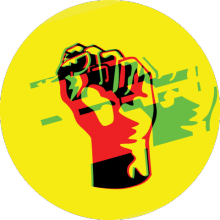


@froatosebe / hvale [@] riseup.net
🦾💜🌈